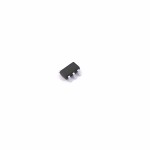The Importance of Connectors in Modern Electronics
Connectors play a crucial role in the world of modern electronics, enabling the seamless integration of various components and systems. Whether in communication devices, automotive applications, or industrial machinery, connectors serve as essential components that allow different parts of a system to work together. This article will explore the significance of connectors, their types, and their applications in various industries.
What are Connectors?
At its core, a connector is a device used to join electrical circuits, components, or devices together, allowing them to communicate or share power. Connectors can come in various forms, from simple plugs and sockets to more intricate, multi-pin configurations. These components provide a reliable means of transferring electrical signals and power while maintaining safety and functionality.
Types of Connectors
Connectors come in a wide variety of types, each designed for specific purposes and applications. Some of the most common types include:
Wire-to-Wire Connectors: These connectors are designed to link two wires together, allowing electrical signals to pass between them. They are often used in smaller electronic devices and consumer electronics.
Wire-to-Board Connectors: These connectors are designed to join wires to printed circuit boards (PCBs). They are essential in connecting external devices to a PCB for signal or power transfer.
Board-to-Board Connectors: These are used to connect two circuit boards together, allowing communication between different sections of a system. Board-to-board connectors come in various forms, such as stacking, edge, and mezzanine types.
Circular Connectors: These connectors are typically used in more rugged environments, such as industrial and military applications. Their circular design ensures a secure connection and is often seen in cables that need to be attached and detached frequently.
USB and HDMI Connectors: Commonly found in consumer electronics, USB (Universal Serial Bus) and HDMI (High-Definition Multimedia Interface) connectors facilitate data transfer and multimedia signal transmission, respectively.
Applications of Connectors
Connectors are ubiquitous in almost every industry that relies on electrical systems. Some of the major applications include:
Consumer Electronics: Connectors are integral in smartphones, laptops, and home appliances. USB connectors, headphone jacks, and charging ports are just a few examples of how connectors are used to link various electronic components.
Automotive Industry: In modern vehicles, connectors are essential for powering and controlling systems such as the infotainment system, air conditioning, power windows, and advanced driver-assistance systems (ADAS).
Telecommunications: In communication devices such as mobile phones, routers, and data centers, connectors ensure that the transfer of data between components is efficient and reliable.
Medical Devices: In the medical field, connectors are used in various equipment such as diagnostic tools, imaging systems, and wearable health monitors. They ensure that power and data can flow seamlessly between devices without compromising the integrity of medical procedures.
Industrial Automation: In factories and manufacturing plants, connectors are used to link sensors, actuators, and controllers, enabling automation systems to work efficiently. These connectors often need to be durable and resistant to harsh environments.
The Future of Connectors
As technology continues to evolve, connectors will also need to adapt to new requirements. The increasing demand for miniaturization and higher performance in devices means connectors must become smaller, faster, and more reliable. Additionally, the rise of the Internet of Things (IoT) and smart devices will require connectors that can handle both power and data transfer simultaneously.
There is also a growing focus on the environmental impact of electronic components, and connectors are no exception. Manufacturers are working towards creating connectors that are more sustainable, using materials that are recyclable or have less environmental impact.
Conclusion
Connectors are often overlooked but are a foundational element of modern electronic systems. Their versatility, reliability, and ability to ensure efficient communication and power transfer across a wide range of devices make them indispensable in today's technology-driven world. As industries continue to innovate, connectors will remain at the heart of this progress, ensuring that different components can work together seamlessly and reliably.




